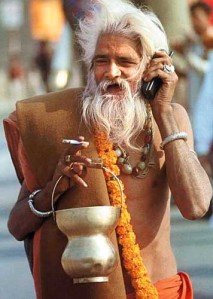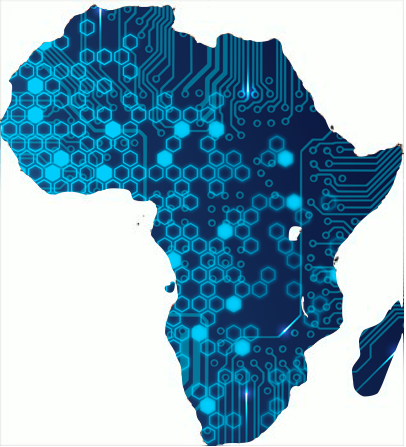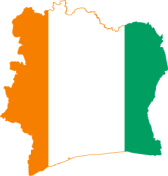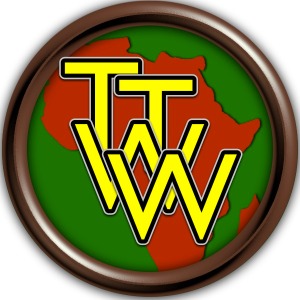I recently discussed ICT in Africa with practioners in the field during a recent morning, and had a realization shortly after about why I have a passion for Africa and for ICT. Because it can be hard to talk about my interest in the continent, I usually brush the question off on ‘Why Africa?’.
I’ve realized since the beginning of my interest, that for a young white male American to have an fixation on the continent is a fact many people find perplexing. African Studies on a whole is a threatened discipline in the United States, and I certainly don’t give off the vibe that I believe most people expect an Africanist to exude.
I’ve often told people that, having been taken to nearly every castle and church in western and eastern Europe as a child by my parents that I wanted something new to explore as I grew older. While it makes seem like Africa was just something to study, in reality it initially was a process of elimination (I had no interest in Asian studies, I didn’t feel I spoke enough Spanish to take up Latin American studies, and saw little future as an American specialist). However, since then, the interest that I hold in the continent has grown into a passion. It is still hard to describe why the passion exists, but I realized what captivates me about the continent: its potential.
 Working in the tech industry in Los Angeles exposed me to a huge cross-section of society each day. It has been an eye opening experience to interact with different people from various socio-economic and cultural backgrounds. I’ve been able to see how there is a universal joy when it comes to using certain pieces of technology, or discovering a new way to do the things easier with technology. However, I’ve also seen a perplexing amount of trepidation, hesitation, and disinterest in the uses of technology. While this might mean you conjure up an image of an elderly American, in fact, just as many young people fail to get the most out of their technology. And when we as Americans do utilize our technology it often serves as a purpose for distraction or entertainment.
Working in the tech industry in Los Angeles exposed me to a huge cross-section of society each day. It has been an eye opening experience to interact with different people from various socio-economic and cultural backgrounds. I’ve been able to see how there is a universal joy when it comes to using certain pieces of technology, or discovering a new way to do the things easier with technology. However, I’ve also seen a perplexing amount of trepidation, hesitation, and disinterest in the uses of technology. While this might mean you conjure up an image of an elderly American, in fact, just as many young people fail to get the most out of their technology. And when we as Americans do utilize our technology it often serves as a purpose for distraction or entertainment.
I see this hesitation and fear of learning the by-product of the Microsoft-led PC-era, where IT departments were set up to support to a workforce that was forced to embrace technology, rather than empower the users. Still, using computers was seen as dull and monotonous. This relatively forgotten video makes the best critique of the era of the Personal Computer.
While the term ‘nerd’ is no longer in vogue, the pejorative nature of the term has lost some of its cultural significance. However, I believe this lingering stereotype has still impacted the willingness of people to dive into and explore new technology. Technology is increasing being used not only to solve old problems and processes, but allow us to think and imagine in new ways. With this potential, why are there people who call themselves ‘tech-illiterate’. I think of that as an excuse used by people to excuse them from learning. Why would anyone want an excuse to not learn?! Learning is one of the most enjoyable, rewarding, and fulfilling joys of life.
The potential that Africa possesses is the fact that it avoided this debilitating PC-era. There is unlikely anyone on the continent who would describe themselves as ‘not tech-literate’. This term isn’t acceptable. For example for many, the ability to use a mobile phone to conduct your business, to send money, to receive money is crucial to their lives. This reality is not realized by many in the west who are able to coast along on legacy processes and technology.
This is where Africa’s potential gives it the greatest competitive advantage in the world. If you were to hand a multi-touch tablet to a young African, rich or poor, he or she has unlikely used or owned one before. Yet, the ability to touch, manipulate, and input data with their fingers would be extremely intuitive, just as with any young person around the world. The reason is many of the adults of the continent have lacked access to personal computers. While PC-penetration has skyrocketed in the past decade, there’s no institutional memory of using unnatural data inputs like a mouse and keyboard that exists like there does in Europe and the United States.
The uses and applications for technology in Africa are part of the final piece of the potential that I see. When I see how parents are increasingly using technology as a substitute for parenting or conversation in the US, I wonder whether this is setting the child up for success, or crippling his or her ability to have the skills to one day apply their creativity in designing new technology. While there’s nothing inherently wrong with games or social networking apps, if it is taking the place of opportunities to build skills that foster creativity: group collaboration, critical thinking, or problem solving, I fear that the future will not meet its potential. While its amazing to watch a child pick up the nuances of Cut the Rope, I wonder what this is teaching them.
I see the applications being made on the continent as being more about solving the problems that have inhibited Africa’s growth which means overcoming certain logistical, budgetary, or geographical problems. While not all of them are going to be as meaningful or well promoted as those from Apps4Africa, I believe the upbringing that is experienced by a majority of Africans will cause them to focus on creating technology that will continue Africa’s trajectory of growth and property, rather than the first African killer app being an addictive game.
This possibility of technology to have a positive and significant impact on development on the continent is what drives my current passion. Seeking out opportunities to increase these possibilities for change and growth in Africa is the mission I’ve adopted. Handing a mobile phone to someone is not going to instantly bring about growth, improved health, and good governance. People need to be able to make the apps and services that will do these things.There needs to be local content and cultural relevance for any ICT product that wishes to succeed. Developers need to be in touch with culture, society, and the history of the people who are the target audience for their app, or their hardware. This is where the melding of the humanities with the tech industry can serve to propel development on the continent.
The knowledge of an area’s history, politics, and culture can be the difference maker when it comes to providing and applying technological solutions. Without it, you fail to understand your potential customers and the market as a whole. While we would like to believe that globalization is making all those who use technology into a homogenous culture of YouTube watchers, Netflix renters, and App downloaders, the underpinnings of culture will provide obstacles for those who seek to enter new markets into the foreseeable future.
Africa’s underdevelopment has hindered progress in many areas. However, for once, the lack of a PC-culture on the continent may provide a unexpected advantage. With the future in mobile technology, and in new, more intuitive interfaces, Africa has the long-term advantage. With technology being seen as a gateway to prosperity on the continent, it will not be long until Africa out innovates the world.






